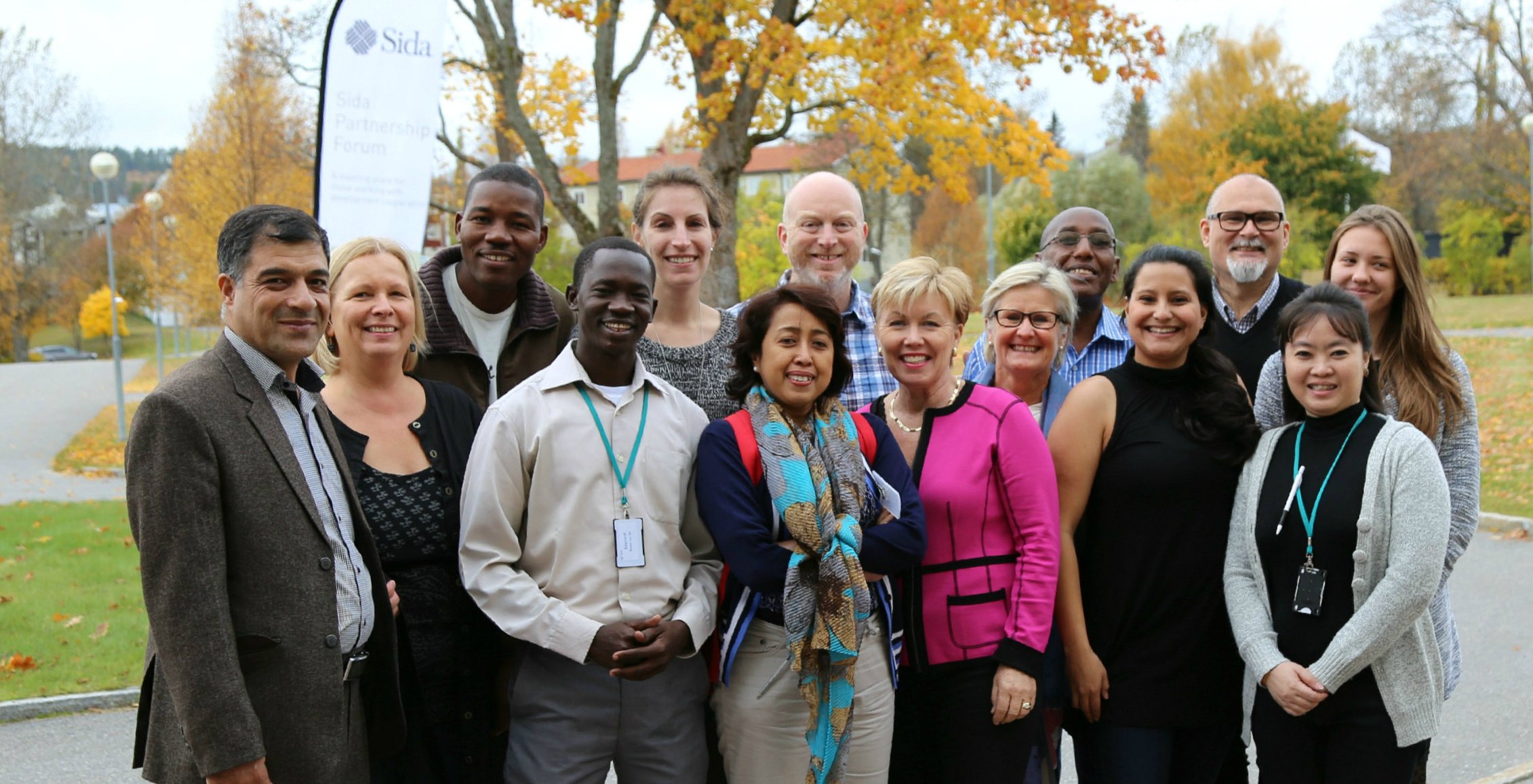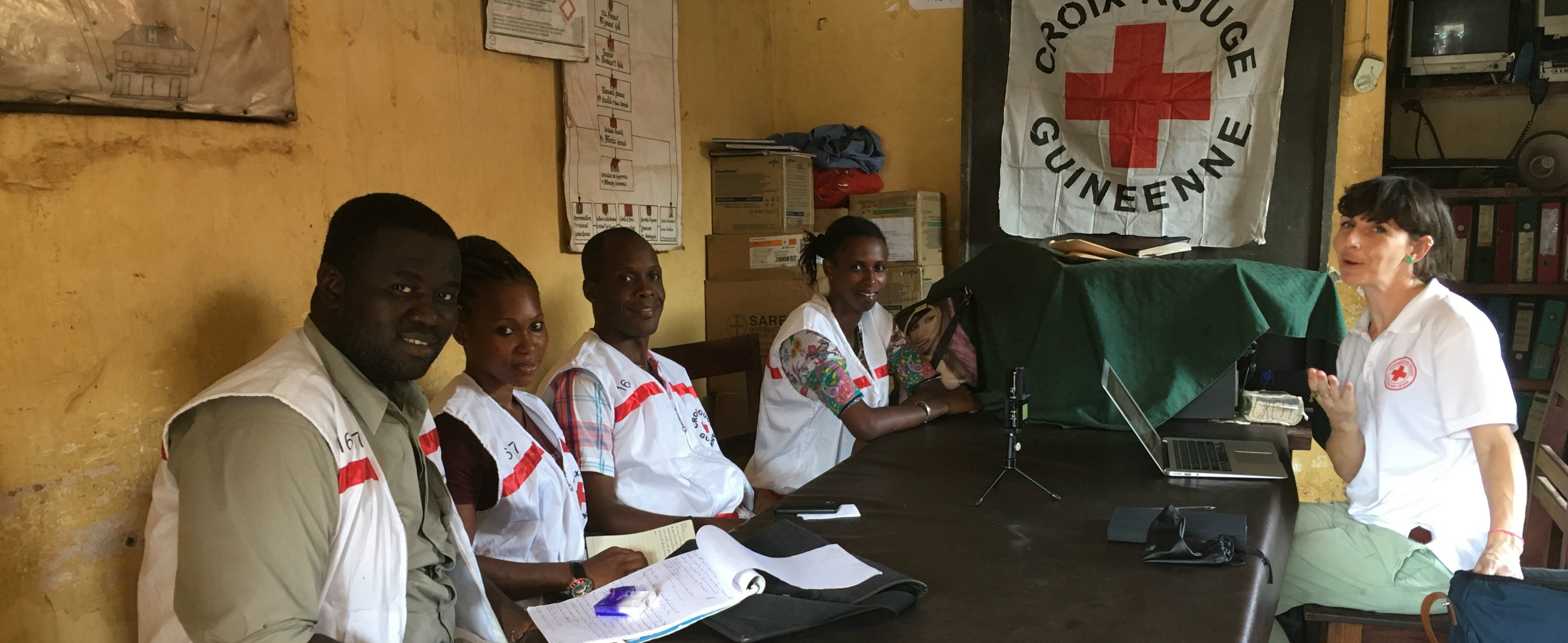2016 is coming to an end and it has indeed been busy.
The ViCE initiative began the year by carrying out the remaining four Listening Studies in Afghanistan, Honduras, Myanmar and Ukraine. In April we drew together the whole project team, including participating National Society representatives, academic partners and other stakeholders, for a meeting in Dubai: “Exploring the Listening Study – Closing Meeting”. At this meeting, we explored data together to develop an initial coding framework for the data analysis. This included workshops on the different ways to understand and make sense of data, and ensuring the perspectives of practitioners played a key role in how we go on to code and analyse the data, as well as activity that identified the priorities for the Initiative in 2017 and beyond.
Northumbria University is an essential partner of the ViCE Initiative and in mid-2016 the team in Newcastle began coding and structuring the data. The Listening Study has accumulated data from sessions with a total of 282 people, including 198 volunteers and 84 stakeholders. The material has proved much richer than anticipated, on top of which, we managed to gather more data than we expected, creating a very labour intensive process for the Northumbria team! However, at the end of 2016, initial coding of the data from the six countries has been completed. At the same time, the Northumbria team have been gathering together diverse publications and papers for a desk review to help us identify and explore key themes and make sure we are plugging the gaps in existing knowledge.

The ViCE initiative is unique because of its co-creation process between National Red Cross Red Crescent Societies and the academic sector. This year has been one of learning not only from the data, but between the participants, as they work together to generate new knowledge and understanding.
The data gathered in the different contexts is beginning to be used to inform ongoing volunteering development activities in challenging humanitarian environments across the Red Cross Red Crescent Movement, something that will accelerate further in 2017. However, the findings can also be used to inform external interested stakeholders. Consequently in June 2016, some members of the ViCE initiative met in Stockholm to participate at the International Society for Third-Sector Research 12th International Conference (ISTR). At several sessions the team held sessions sharing the experiences of the research component of the ViCE Initiative.
In November, the International Association of Volunteer Effort World Conference held in Mexico provided another opportunity to share the experiences of the ViCE Initiative. The team participated at one research forum panel as well as organized a workshop that explored the data from the Listening Study. For both these external meetings, data has been extracted and used to exemplify some of issues raised, and shared with participants to help them both understand the complexity of the volunteers’ experiences. Through this, we have started to develop a participatory model for learning and engagement, something that we will be developing further in 2017. A more specific presentation on findings around psychosocial aspects was presented at a global Red Cross Red Crescent meeting in Stockholm in December on Mental Health and Psychosocial Needs in Armed Conflict and Violence.
The first time to try the Listening Methodology outside the ViCE Initiative was given through the Swedish Red Cross project Sanitation in Emergencies (SanE) and Green Response. The ViCE team facilitated an “Ebola Listening Study” in Sierra Leone and it gave team members from Honduras and Sudan an opportunity to use the methodology themselves, instead of just organizing a listening study. More data was gathered and enriched the existing material bringing in aspects of responding to an epidemic.

The National Red Cross Societies in Guinea, Liberia, Sierra Leone and International Federation of the Red Crescent Societies (IFRC) requested in September, technical support for carrying out an “Ebola Volunteering Review” to capture learning from the Ebola response. The ViCE Initiative made resources available and during three weeks in November-December, about 45 semi structured interviews were carried out with staff and volunteers. The initial findings were shared with the National Societies and the IFRC. The report is expected in January 2017.
Taking forward the findings from the Listening Studies and addressing essential issues raised by the volunteers is the second phase of the ViCE Initiative. In summer 2016, the Sudanese Red Crescent requested support to explore volunteer leadership and find ways on how to develop it further in their context. In October, an exploratory workshop was organized in Khartoum bringing together a select group of staff and volunteers of the National Society. During three days the participants explored volunteer leadership in Sudan and outlined essential components of a future volunteer leader programme for the National Society. This workshop, linked to the participatory data approach, has contributed to outlining a working approach to how the findings can address essential issues facing volunteers in conflict settings: “pop-up development and innovation labs”. More of these will be co-developed and carried out in 2017, and if you have an interest in hosting one, get in touch with the team.
As the year draws to a close, the ViCE team have continued to engage new partners and stakeholders, reflecting their commitment to co-creation and ensuring the data has the widest possible use amongst stakeholders. Discussions have been held with the Swedish Defense University that has a special programme and research team focusing on Leadership in Demanding Situations (civic/non-military focus). In the UK, a new Research Fellow in Northumbria University’s Centre for International Development with expertise on volunteering and emotion, will be supporting the data analysis, whilst colleagues from the digital civics team of Open Lab, at Newcastle University, have joined us to work on the capacity of digital technologies to support training and learning from the ViCE data.
It has been a busy year, but one that has revealed the importance of listening to the voices of volunteers in conflict settings and in addressing some of the issues they face in. In the coming year, we will develop further pop innovation labs, co-create training activities and discussion papers to share findings, develop and update the ViCE exhibition, run a ‘summer school’ to support capacity across the Movement, and participate in key stakeholder and movement events to make sure the needs and experiences of volunteers in conflict are better understood and responded.
If you would like to get involved or hear more, drop us a line!
Matt and Stefan
